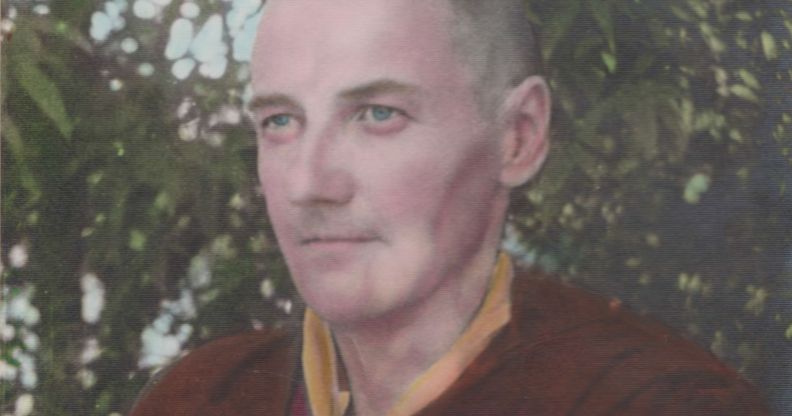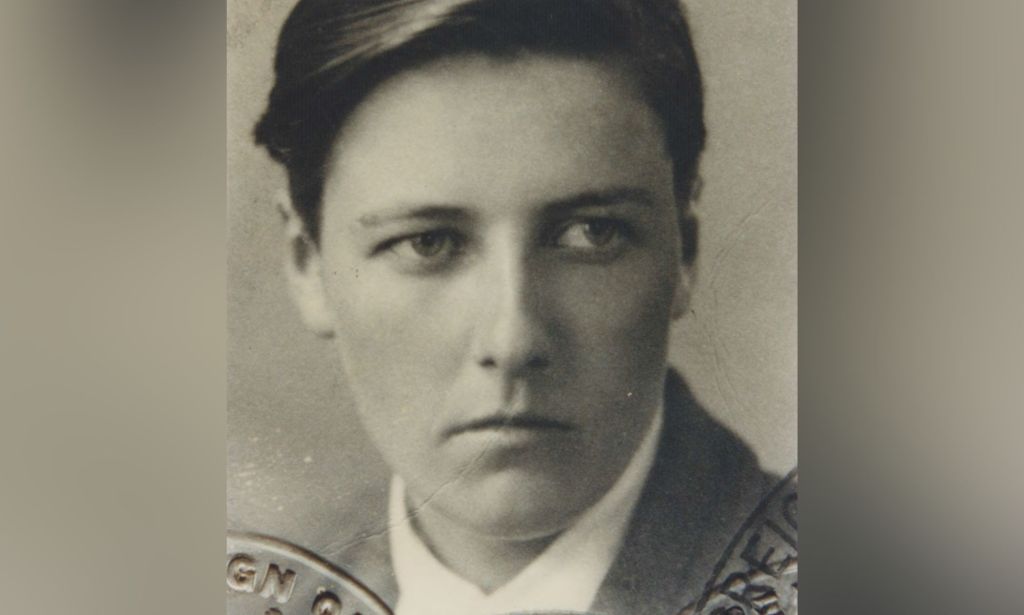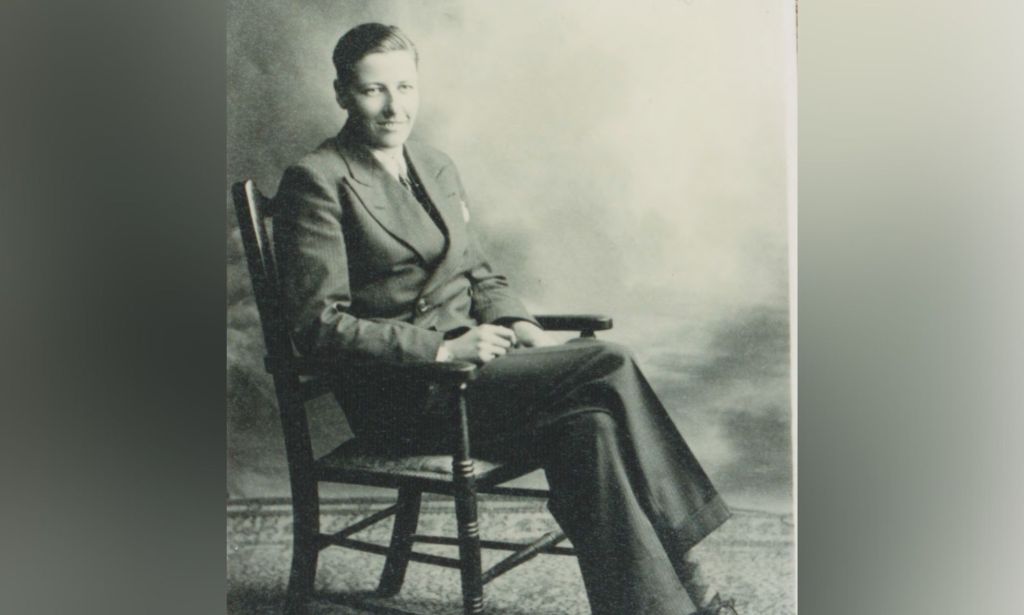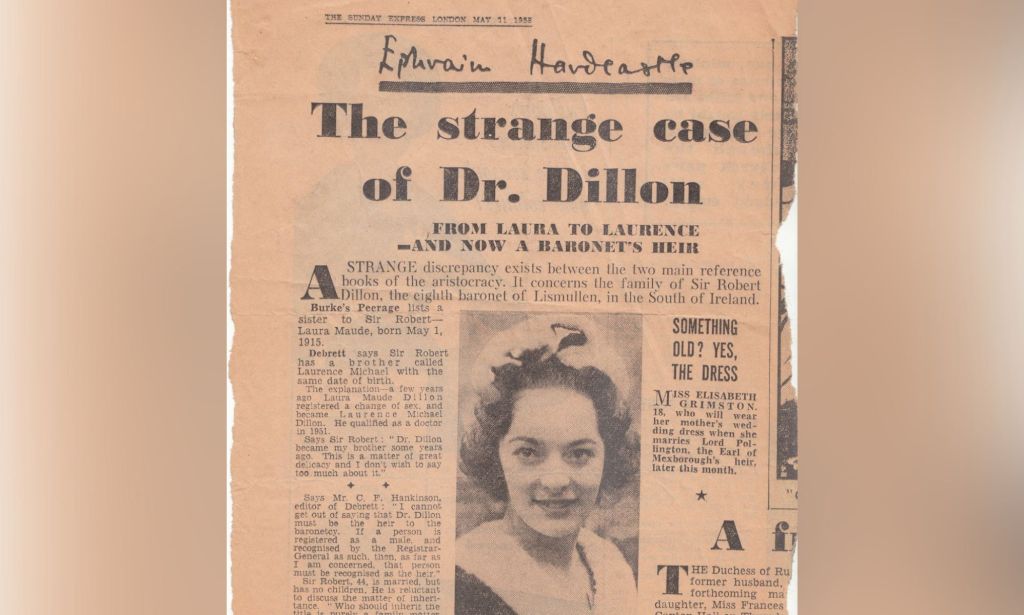Michael Dillon: ‘First trans man to medically transition’ became a monk after his heart was broken

Michael Dillon explored Buddhist thought and became a monk after being outed as trans by the press. (St Anne’s College from the private collection of Liz Hodgkinson)
Laurence Michael Dillon was the first trans man on record to undergo gender-affirming surgery.
More commonly known as just Michael Dillon, he was a doctor, philosopher, poet and seeker of spiritual enlightenment.
His quest for self-understanding and freedom led him to transition, leave behind his previous life and begin anew as a Buddhist monk in India.
Born in May 1915 in Kensington, west London, Dillon grew up in an Anglo-Irish family who were heirs to an aristocratic title: the baronetcy of Lismullen in County Meath, Ireland.
He was raised with his older brother by their two aunts in Folkestone and attended St Anne’s College, which, at the time, was a women-only college at the University of Oxford.
Dillon was aware of his trans identity from a young age. In his memoir, he recalled walking with the “18-year-old nephew of the vicar” in Oxford when he was suddenly struck by the thought that the other young man thought him a woman.
He wrote: “It was a horrible moment and I felt stunned. I had never thought of myself as such, despite being technically a girl.”

After university, he began medically transitioning
Dillon, a keen rower and president of his college boat club, graduated in 1938 and took a job at a laboratory in Bristol, where be began medically transitioning
He sought treatment from a doctor who was looking into medical uses for testosterone, and was prescribed hormone tablets.
The doctor recommended Dillon talk to a psychiatrist before treatment, but this led to Dillon being outed to his work colleagues and forced to leave.
He took on a job at a garage where he was mocked and misgendered by his colleagues. In the typescript of his memoir, Dillon wrote that this was the “worst period of [his] life” before eventually crossing it out.
Dillon was hypoglycaemic and would often faint due to his low blood-sugar level. While recovering from one episode at the Bristol Royal Infirmary, he met a plastic surgeon who went on to perform his top surgery. He was provided with a doctor’s note that enabled him to change his birth certificate and later update his legal name.
He described how all of these changes helped him to “escape from what had been a prison of darkness” where he hadn’t able to live as his true self.
A short time later, Dillon was accepted at Trinity College, Dublin to begin his medical studies.
There, he spent school breaks undergoing a series of gender-affirming surgeries, under the care of Harold Gillies, widely considered the father of modern plastic surgery.
It was during this time that Dillon became the first known case of a trans man undergoing phalloplasty, the surgical creation of a penis.
Dillon’s love of writing brought him closer to another trans innovator
While at university, Dillon wrote about the intersection of ethics, medicine, biology and trans identities.
In 1946, he published Self: A Study in Ethics and Endocrinology. It was this work that brought him into contact with Roberta Cowell, a former racing car driver and WWII fighter pilot, who would become the first trans woman in the UK to undergo gender-affirming surgery.
The two began frequent correspondence, and, for Dillon, it was a romantic attachment.

According to his memoir, he’d purposely cultivated a reputation as a misogynist to hide his trans identity because he had to “be careful” with women.
But it was different with Cowell, and it was clear from his letters that he felt a deep connection even though she didn’t return his feelings.
He even risked his medical career to perform an orchiectomy, a surgical procedure to remove a testicle, on Cowell, before he received his physician’s licence.
Their relationship ended when – shortly after Dillon finished medical school in 1951 and Cowell transitioned – he proposed marriage and she turned him down.
Dillon left his life in the UK behind and joined the merchant navy as a ship’s doctor
In 1958, while still at sea, Dillon was outed after the press reported the alterations to his name and gender in the records of peerage. To avoid the unwanted media attention, he fled to India and retreated to a monastery to become a Buddhist monk.

He took the name Lobzang Jivaka, derived from the name of the Buddha’s physician. Dillon continued to write poetry as well as manuscripts and essays.
He wanted to tell his story on his own terms, which led to him writing his memoir, Out of the Ordinary. However, just a few weeks after finishing the autobiography in 1962, Dillon died, aged just 47. No cause of death has ever been revealed, although there were some baseless rumours that he had been poisoned.
After Dillon’s death, his brother wanted to burn his unpublished autobiography, but the manuscript was saved by his literary agent. It would take until 2017 for it to be published in its entirety.
Dillon was undoubtedly a revolutionary figure in trans history and left behind a multi-faceted legacy for the generations that came after him. In defiantly shaping his destiny, he ensured that his voice could be heard and that others could understand his experience as a trans person.

